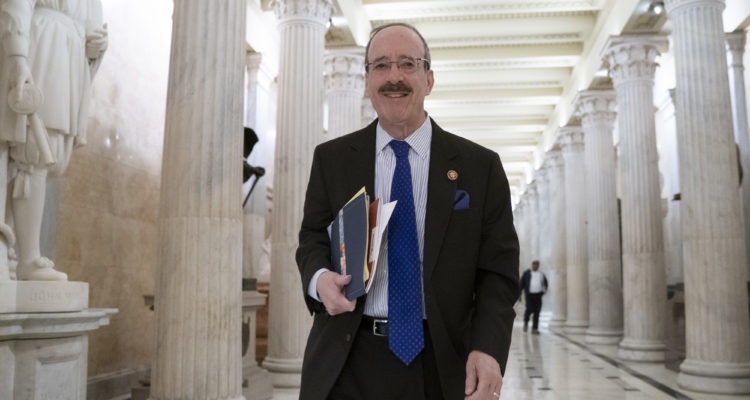Israel supporters in the House of Representatives are taking issue with a single word in a resolution supporting the two-state solution.
By Batya Jerenberg, World Israel News
Several of Israel’s supporters in the House of Representatives are holding up a proposed resolution that reaffirms support for the two-state solution because it is presented as the “only” solution to the conflict.
House Foreign Affairs Committee Chairman Eliot Engel (D-NY) is leading a group of Democrats in refusing to sign on to their own Caucus’ non-binding resolution because it limits support of a peace deal to a single option, Politico reports.
Their position echoes a statement made by President Donald Trump during a meeting with Prime Minister Benjamin Netanyahu at last year’s opening of the U.N. General Assembly.
While saying he thought the two-state solution “works best,” Trump hedged by adding, “Now bottom line, if the Israelis and the Palestinians want one state — that’s OK with me. If they want two states, that’s OK with me. I’m happy if they’re happy.”
More recently, in May, presidential adviser Jared Kushner said that there is a good reason why the peace deal he has been crafting with Jason Greenblatt for over two years does not use the phrase “two-state solution.”
“I realize that means different things to different people,” he said. “If you say ‘two states’ to the Israelis it means one thing, and if you say ‘two states’ to the Palestinians it means another thing. So we said, ‘let’s just not say it’. Let’s just work on the details of what this means.”
House Majority Leader Steny Hoyer of Maryland, who is also considered a friend of Israel, wants the resolution as a sign of his party’s support for the Jewish state. This has recently been thrown into doubt due to the vocal criticism aired against Israel by Democrats such as freshman congresswomen Rashida Tlaib, Ilhan Omar and Alexandra Ocasio-Cortez.
“I’m trying to get language that I think will be acceptable to the broadest number of people, and Republicans as well…. One word here, one word there is not what you’re going to — you’re not going to report on the word,” Hoyer said in downplaying the importance of the resolution’s exact language.
He also noted to reporters that the House has successfully passed many resolutions that formally back the two-state proposal. This includes one that just passed overwhelmingly on Tuesday whose main focus was a clear condemnation of the anti-Israel BDS Movement.
Inserted among its clauses was a reaffirmation “for a negotiated solution to the Israeli-Palestinian conflict resulting in two states — a democratic Jewish State of Israel and a viable, democratic Palestinian state – living side by side in peace, security and mutual recognition.”
One Jewish organization recognized the danger of that insertion and tried to sound a warning.
The Zionist Organization of America (ZOA) called it “unnecessary and harmful” in a statement it put out. Among the many arguments the organization made for not putting such language in an otherwise good resolution, it pointed out that such an entity would not be peaceful.
“A Palestinian-Arab state would be another rocket-launching, Hamas-run, Iranian-satellite terror regime dedicated to Israel’s destruction,” the statement said.
It also added that the idea of putting in such language in an effort to get the vote of “Congresspersons who are not particularly friendly to Israel” is “misguided,” comparing it to inserting a call for a KKK state in a resolution opposing boycotts of Black Americans.





